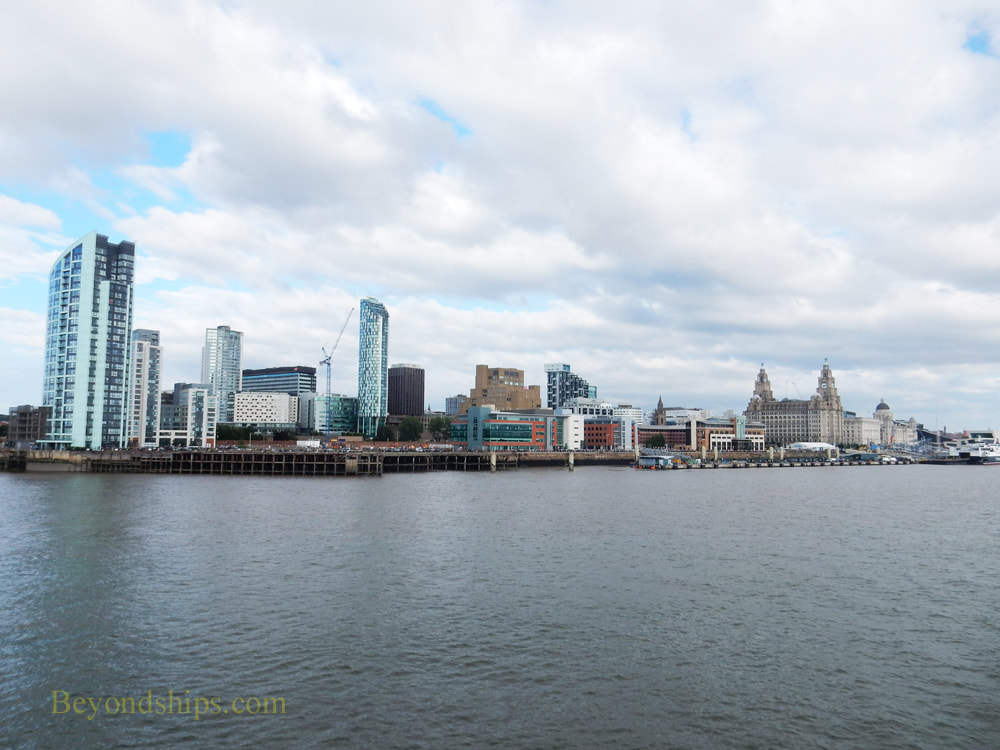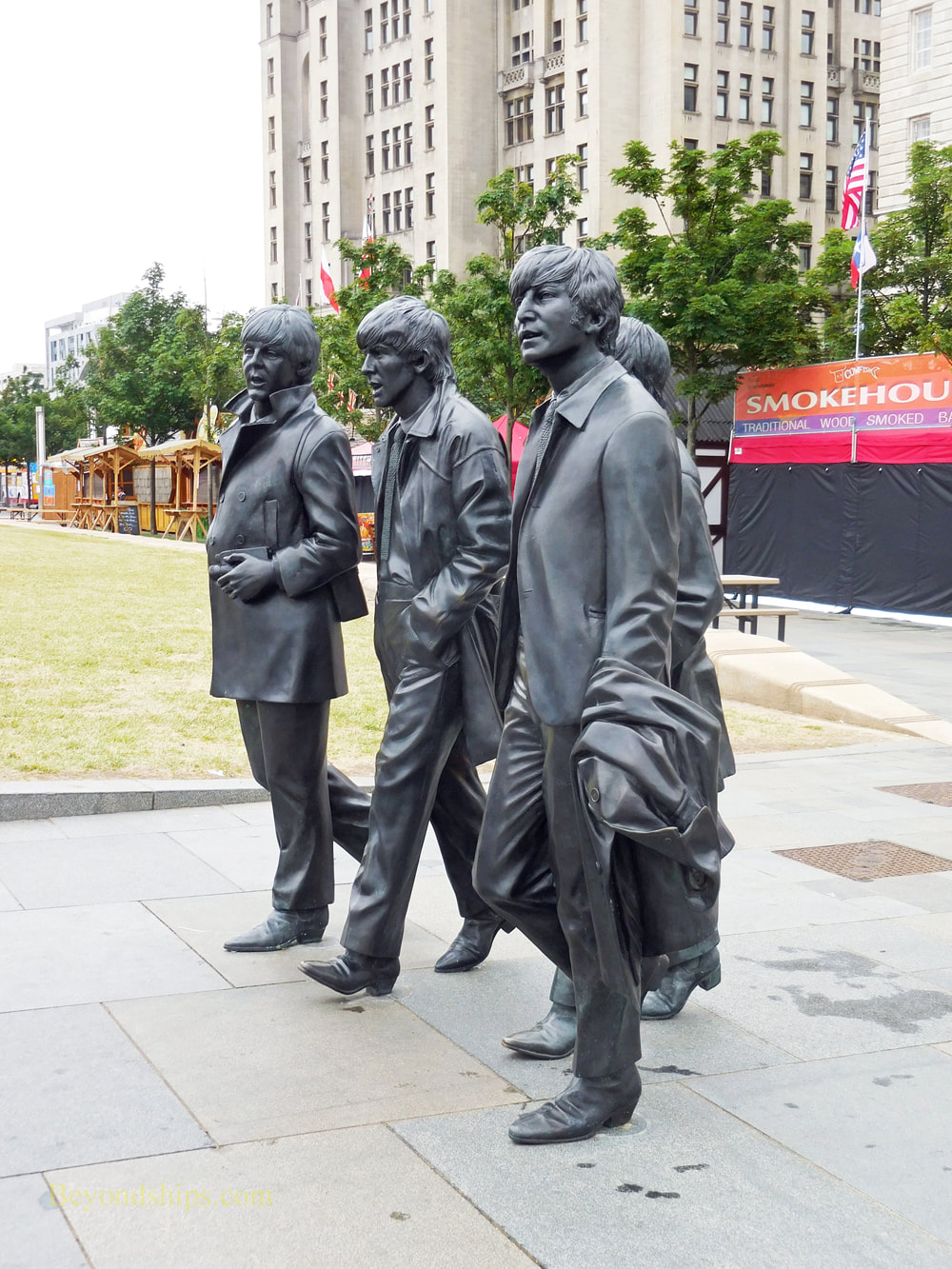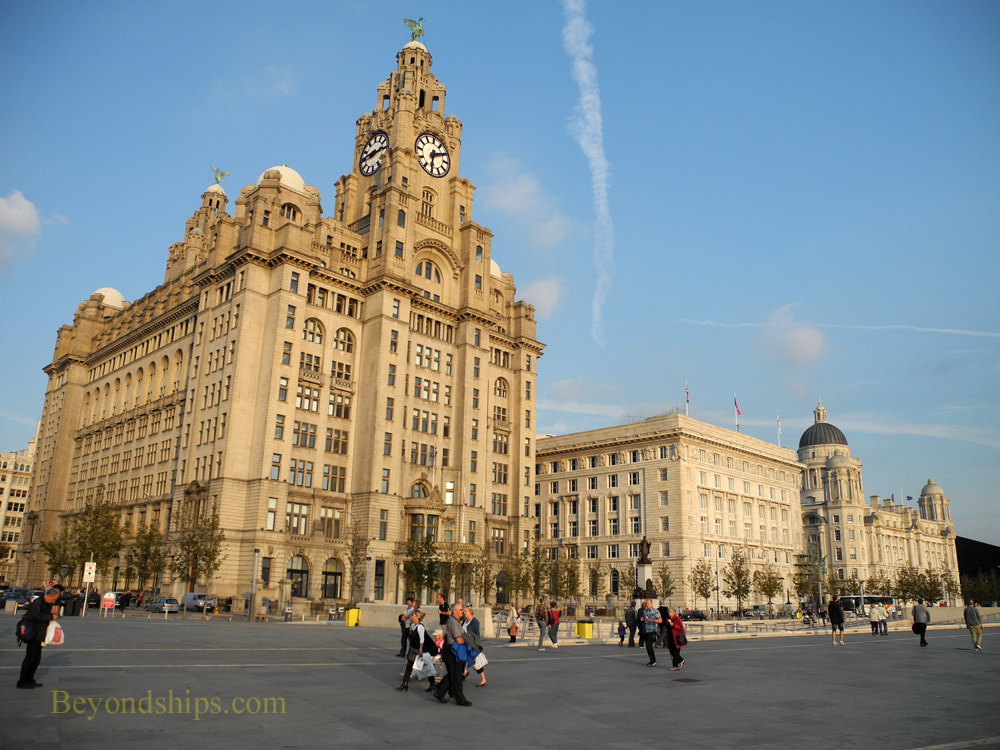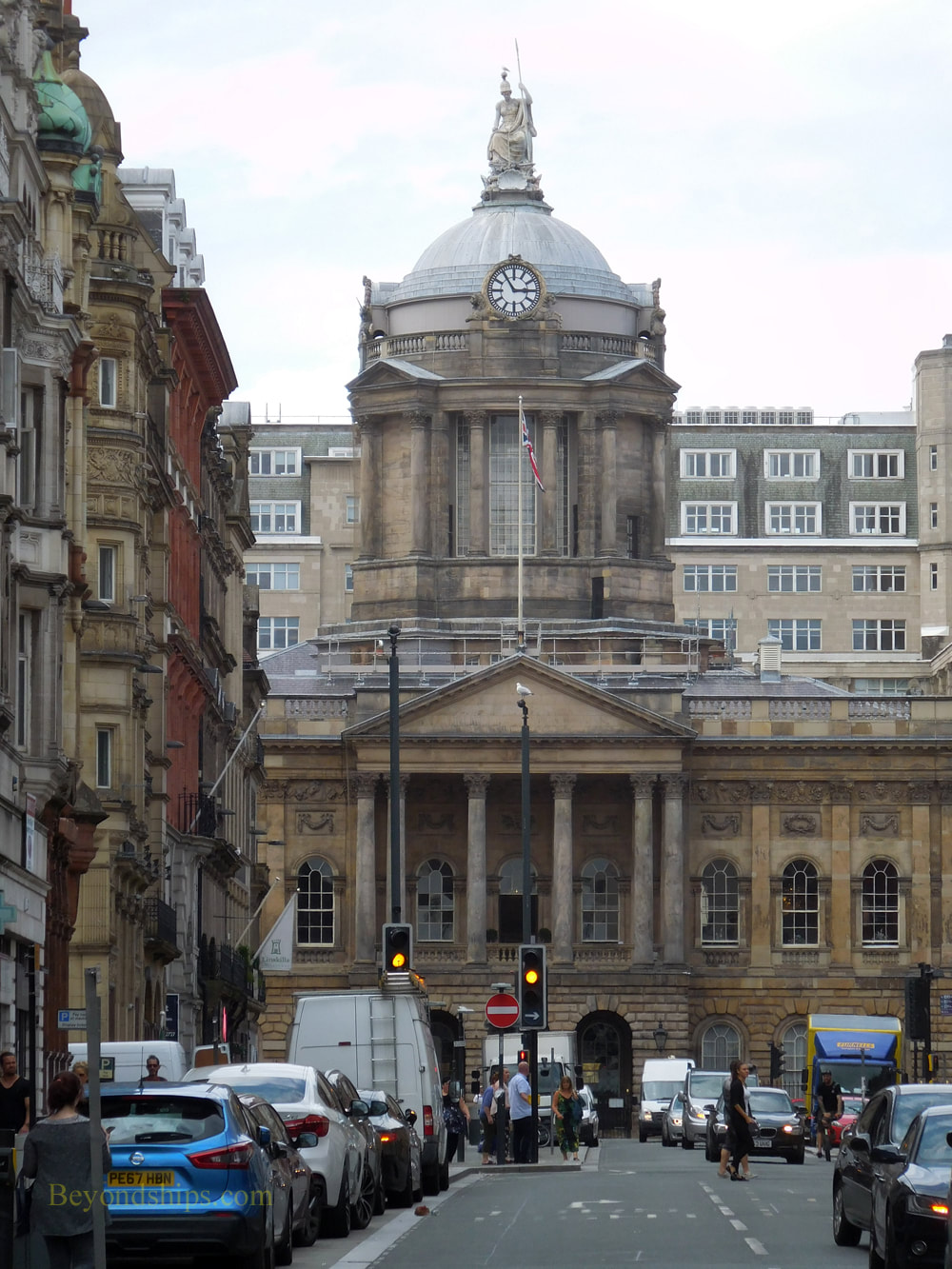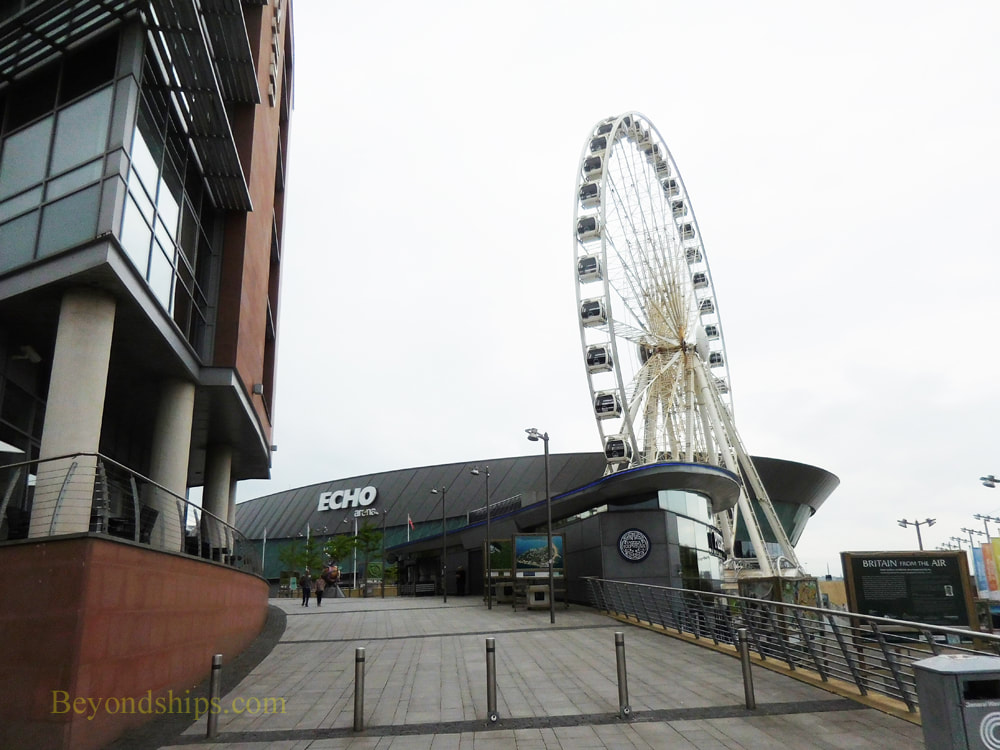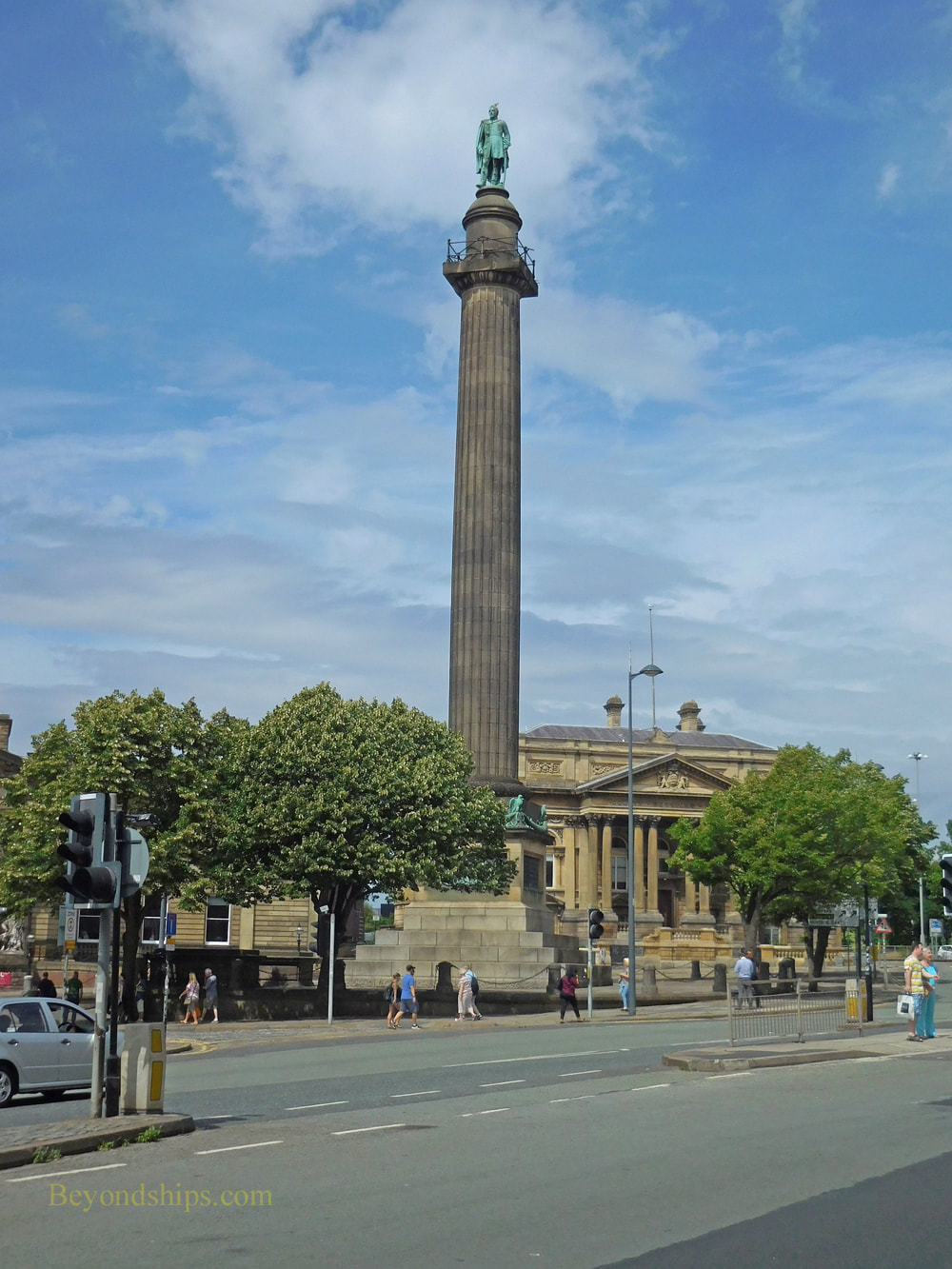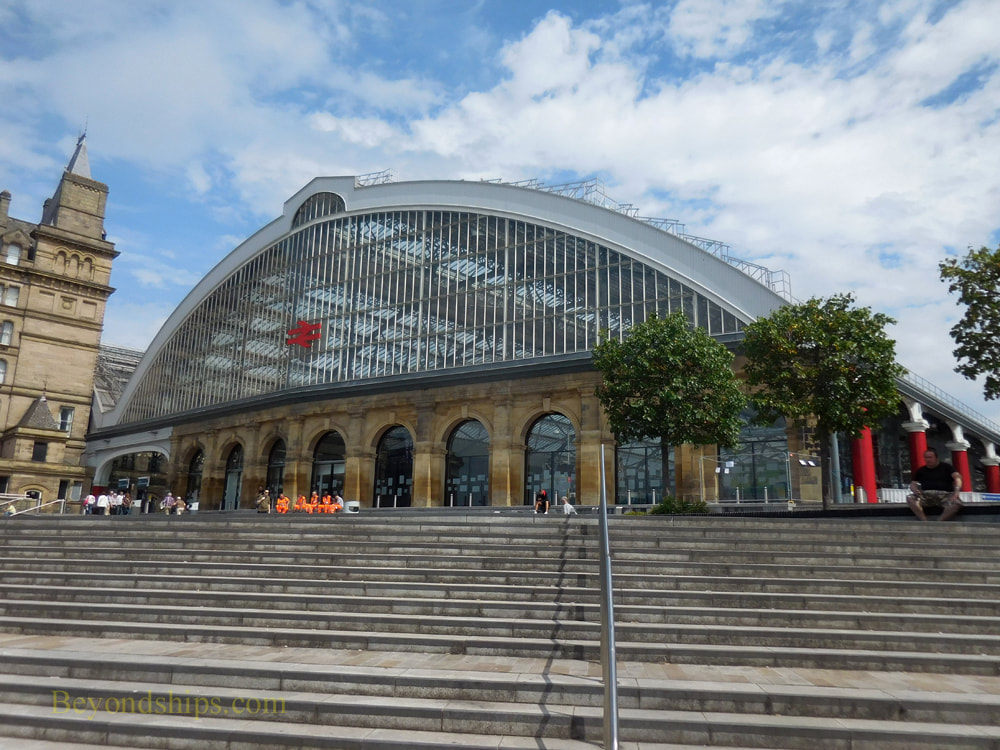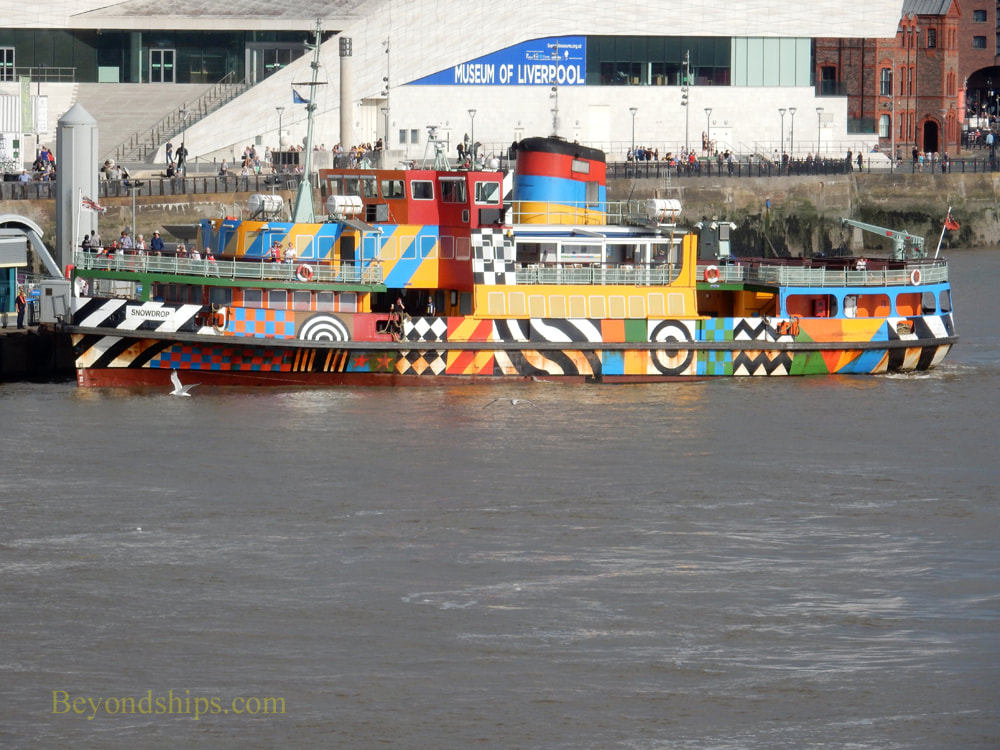|
Liverpool is one of Great Britain's best known cities. It achieved international fame first as one of the world's great trading ports. It achieved fame again in the 1960s when it gave birth to a new movement n popular music and culture. Today, it has largely recovered from the urban ills that beset it in the late 20th century and become a popular tourist destination.
Located in northwest England, Liverpool lies on the eastern side of the River Mersey, not far from the Irish sea. King John designated Liverpool as a borough in 1207. However, Liverpool remained a relatively small community until the 17th century. The nearby city of Chester on the River Dee had been the primary port for the area. However, as the Dee began to silt up, shipping shifted to Liverpool. During the 17th and 18th centuries, Liverpool grew in importance as its port prospered. Riches came from the slave trade, tobacco and commerce with the British colonies in North America. Its importance continued to grow after the industrial revolution as it was the primary port for the importation of the cotton that was turned into textiles by the new mills in the English midlands. As a result, Liverpool's economy rivaled and at times surpassed that of London in the 19th century. Liverpool's fortunes began to turn sour in the 20th century. Although Liverpool was the port of registry for ships such as Titanic, the Queen Mary and Queen Elizabeth, they rarely if ever went there. Southampton had become the primary port for passenger ships. The Great Depression brought high unemployment and bombing during World War II damaged much of the city. After the war, obsolete port and manufacturing facilities further contributed to Liverpool's decline. By the beginning of the new millennium, things began to change. A new service-based economy had replaced traditional industries. Redevelopment and new construction had transformed the city center. As a result, Liverpool is one of the most visited cities in the UK. There are several reasons Liverpool attracts visitors. To begin, there is the legacy of its days as one of the world's leading port cities. Although there are Tudor era buildings and more Georgian houses than in Bath, most of the landmarks are great Victorian and Edwardian structures that were richly decorated. Most of these can be found in Liverpool's two World Heritage sites. Liverpool is also rich in cultural offerings. It has a renowned symphony orchestra as well as several art museums with important collections. However, these are overshadowed by Liverpool's role in popular culture. The city is known throughout the world as the birthplace of The Beatles. John Lennon, Paul McCartney, George Harrison and Ringo Starr grew up and first achieved fame in Liverpool Not only did their success trigger interest in other contemporary British musicians but they had a lasting influence that transcends popular music. For many years, this part of Liverpool's heritage was neglected and as a result, significant sites such as the Cavern Club were lost. However, Liverpool now recognizes the Beatles' significance. Indeed, the city's airport is named after John Lennon, the first airport in the UK to be named after a private individual. Much has been done to make the city attractive to visitors. The waterfront along the Mersey near the cruise ship terminal has been extensively redeveloped. The Royal Albert Dock has been transformed from neglected warehouses into museums, shops and cafes. New buildings such as the Museum of Liverpool and the Echo Arena have been added. Much of the area is pedestrianized as have some of the main shopping streets further inland. Consequently, the city center is quite walkable. The weather in Liverpool is similar to the rest of England. However, summer days tend to be cooler than in London. About half a million people live in the city of Liverpool with approximately 2.24 million living in the general area. Due to imigration during the Potato Famine, many are of Irish descent. Other ethnic groups include one of the oldest Chinese communities in Britain. Locals are called Liverpudlians. The official language in Liverpool is English. Liverpool's distinctive accent is known as “Scouse.” The currency is the British pound sterling. Credit cards are widely accepted. |
Above: The Beatles Statue by Andrew Edwards on the Pier Head.
Below: The Three Graces, three ornate buildings constructed in the early 20th century, reflect Liverpool's prosperity and prominence as a port. Above: Liverpool Town Hall.
Above: The Echo Arena in Liverpool's revitalized waterfront.
Below: Wellington's Column in Liverpool's Cultural Quarter. Liverpool has one of Britain's largest collections of public statues. |
Above left: The Lime Street Station, Liverpool's main railroad station.
Above right: The Mersey Ferry of pop song fame, takes passengers across the river.
Above right: The Mersey Ferry of pop song fame, takes passengers across the river.
|
|
For more about cruising to England:
Click here for our England home page Click here for our London home page |
|
|
|
Cruise destinations - England - Liverpool - Overview
